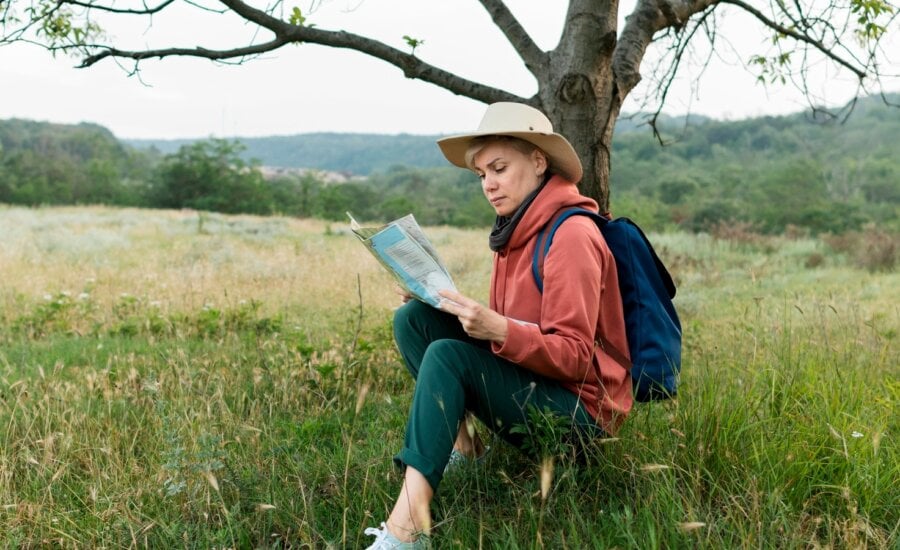Single, no pension? Here’s how to plan for retirement in Canada
There are financial and logistical challenges to being single in retirement. Here are some tips to tackle them, especially if you don’t have a pension.
Advertisement
There are financial and logistical challenges to being single in retirement. Here are some tips to tackle them, especially if you don’t have a pension.

Being single in retirement has some financial obstacles. Some people are single as they enter retirement. Others become single due to divorce or death prior to or after retiring. Here are some considerations for planning your retirement as a singleton, especially if you have no defined benefit (DB) pension.
One third of Canadians struggle to plan for retirement and 75% of people say their cost of living is negatively impacting their retirement savings, according to a Sun Life survey.
What does this mean for singles? You know it doesn’t cost twice as much to live with another person, because there are fixed costs to running a household that apply to singles and couples.
According to Statistics Canada’s Survey of Household Spending, a one-person household had total expenditures of $49,661 in 2021. By comparison, couples without children had total expenditures of $91,121. This implies cost savings of about 17% for the second person in the household.
Shelter costs were the largest expense for all households in 2021. Couples without children coughed up about 30% of their household spending on shelter. By comparison, singles spent 37%.
As a result, singles need to save more than couples on a per-person basis to provide the same standard of living and maintain it in their golden years.
Compared to one-person households, couples have more ability to minimize taxes. For example:
There are more sophisticated strategies as well, but the point is this: couples can legally and strategically minimize tax more easily than a single taxpayer can.
Pension plan participation has been on the decline for all workers in all industries. Defined benefit plans are being replaced with defined contribution (DC) plans that put more risk on retirees. Single retirees who do not have pensions have options, though.
Most DB pension benefits are payable only to surviving spouses. Some pensions have survivor benefits for children or a guaranteed number of months of payments to an estate.
A CPP survivor pension can be paid to the spouse or common-law partner of a deceased contributor. Single retirees are somewhat disadvantaged since their children will usually not qualify for a benefit if they die.
Children’s benefits are only payable if a surviving child is under 18, or if they are attending full-time post-secondary education and are between 18 and 25.
One of the challenges everyone faces as they age is making sound financial decisions. Our experience and knowledge may increase as we age but our ability to process complex decisions tends to begin declining before we retire.
Single seniors don’t have a partner to bounce ideas off, so many may find themselves stressed about retirement and financial planning. And not everyone feels comfortable talking about money with their children and friends, and not everyone has a financial advisor, either. (Use the MoneySense Find a Qualified Advisor Tool to find an advisor near you.)
Partners, adult children and friends can provide accountability, as well with spending and other financial decisions and keep each other in check.
A single retiree can certainly be successful, but the challenges they face are different from that of couples.
For these reasons, being conservative, deferring pensions, considering annuities, seeking financial advice, and proactively planning are all strategies to consider when planning for retirement as a one-person household—especially if you have no pension plan.
Share this article Share on Facebook Share on Twitter Share on Linkedin Share on Reddit Share on Email
Can’t wait for Jason Heath to be commissioned by Money Sense to write an article about a business owner who sets up either an IPP or a PPP to save for retirement and how that compares to keeping the money trapped in the corporation or in an RRSP…
6T1 and no pensions
No savings
Single
I’m worried about what happens when I turn 6T5
I have no money
It’s certainly an uneven playing field. Couples have all the advantages. Cost of living is much higher for singles and yet somehow must save even more for their retirement. And then as seniors, they will continue to pay more than a couple to survive. Retirement overseas may be the only solution.
If you contributed for less than 10 years into the CPP start taking payments as soon as you turn 60. If you contributed for 8 years and you die, your spouse gets nothing, not even the death benefit.